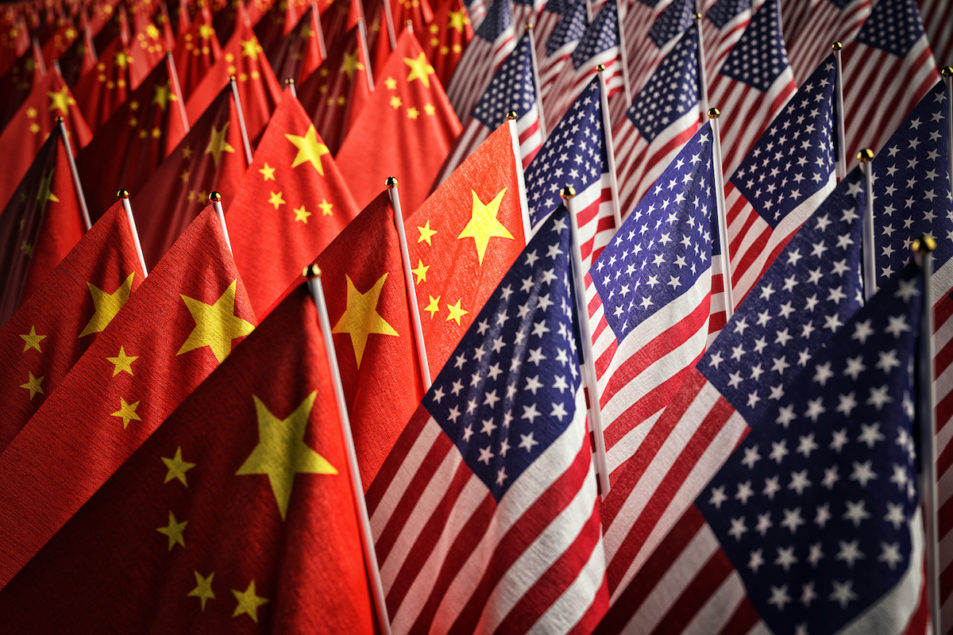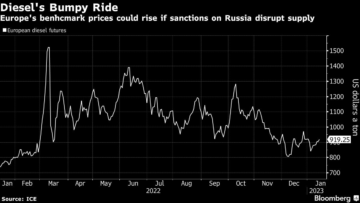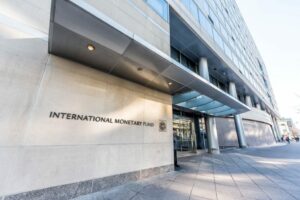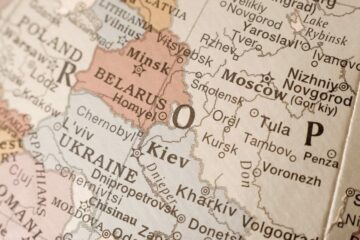
The Chinese government voiced its disapproval of President Joe Biden’s recently signed executive order that aims to limit U.S. investments supporting China’s technology sector.
In an August 10 statement, the Chinese Foreign Affairs Ministry said it was dissatisfied with the measure, and strongly opposed the U.S.’s new investment strategy. Meanwhile, the Chinese Embassy in Washington D.C. said the executive order is another attempt by the Biden administration to “politicize and weaponize” trade relations between the two countries, according to CNBC.
“The latest investment restrictions will seriously undermine the interests of Chinese and American companies and investors, hinder the normal business cooperation between the two countries and lower the confidence of the international community in the U.S. business environment,” wrote Liu Pengyu, a spokesman for the Chinese Embassy. He added that Beijing will closely monitor the situation while calling on Biden to stop the obstruction of China’s economic development.
China’s Commerce Ministry asked the U.S. to respect fair economic competition and refrain from “artificially hindering” international trade by creating obstacles that delay the recovery of the global economy.
“This is naked economic coercion and technological bullying,” reads a translated statement from a spokesperson for the Chinese Foreign Affairs Ministry. The organization also said that the move violates the principles of market economics and fair competition, severely disrupts the international trade order, throws off the stability of the global industrial supply chain and hurts the interests of China, the United States and the world’s business community.
On August 9, Joe Biden signed an executive order that limits the amount of U.S. investment and expertise, in areas like semiconductors, microelectronics, quantum computing and artificial intelligence, being provided to China, Macao and Hong Kong. The measure is expected to take effect in 2024.
- SEO Powered Content & PR Distribution. Get Amplified Today.
- PlatoData.Network Vertical Generative Ai. Empower Yourself. Access Here.
- PlatoAiStream. Web3 Intelligence. Knowledge Amplified. Access Here.
- PlatoESG. Automotive / EVs, Carbon, CleanTech, Energy, Environment, Solar, Waste Management. Access Here.
- PlatoHealth. Biotech and Clinical Trials Intelligence. Access Here.
- ChartPrime. Elevate your Trading Game with ChartPrime. Access Here.
- BlockOffsets. Modernizing Environmental Offset Ownership. Access Here.
- Source: https://www.supplychainbrain.com/articles/37896-china-slams-biden-for-tech-investment-executive-order
- :is
- 10
- 2024
- 9
- a
- According
- added
- administration
- Affairs
- aims
- also
- American
- amount
- an
- and
- Another
- areas
- artificial
- artificial intelligence
- AUGUST
- Beijing
- being
- between
- biden
- Biden Administration
- bullying
- business
- by
- calling
- chain
- China
- Chinas
- chinese
- closely
- CNBC
- Commerce
- community
- Companies
- competition
- computing
- confidence
- cooperation
- countries
- Creating
- D.C.
- delay
- Development
- Economic
- Economic Development
- Economics
- economy
- effect
- Environment
- executive
- executive order
- expected
- expertise
- fair
- For
- foreign
- from
- Global
- Global economy
- he
- hinder
- Hong
- Hong Kong
- HTML
- HTTPS
- hurts
- in
- industrial
- Intelligence
- interests
- International
- International Trade
- investment
- Investment strategy
- Investments
- Investors
- IT
- ITS
- joe
- Joe Biden
- jpg
- Kong
- latest
- like
- LIMIT
- limits
- lower
- Market
- Meanwhile
- measure
- ministry
- Monitor
- move
- New
- new investment
- normal
- obstacles
- of
- off
- on
- opposed
- order
- organization
- plato
- Plato Data Intelligence
- PlatoData
- president
- principles
- provided
- Quantum
- quantum computing
- recently
- recovery
- relations
- respect
- restrictions
- s
- Said
- sector
- Semiconductors
- seriously
- severely
- signed
- situation
- Slams
- spokesperson
- Stability
- Statement
- States
- Stop
- Strategy
- strongly
- supply
- supply chain
- Supporting
- Take
- tech
- technological
- Technology
- Technology sector
- that
- The
- the world
- to
- trade
- two
- u.s.
- Undermine
- United
- United States
- was
- washington
- Washington D.C.
- while
- will
- with
- world
- zephyrnet












